Dallas
214-456-2768
Fax: 214-456-6898
Plano
469-303-0055
Fax: 469-303-0655
Tuberous sclerosis (TSC) is a genetic condition that causes noncancerous tumors to grow in the brain and other parts of the body. In the brain, these tumors can cause seizures and epilepsy.
We offer advanced therapies for the symptoms of TSC – including less-invasive brain surgery – so that your child can live a full life. Children's Health℠ is home to a Level 4 Epilepsy Center, the highest accreditation available. This designation means that we offer the highest level of care for children with epilepsy.
214-456-2768
Fax: 214-456-6898
469-303-0055
Fax: 469-303-0655
Tuberous sclerosis complex (TSC) is an inherited condition that causes benign (noncancerous) tumors, also called lesions. In the brain, these growths can cause seizures. In other organs, they can cause kidney disease and other conditions. Medication and surgery can ease these symptoms.
Tuberous sclerosis is part of a family of conditions called malformations of cortical development. These disorders cause a person’s brain to develop atypically, with certain cells in places where they don’t normally appear.
Our interdisciplinary medical team, which includes genetic counselors, has the experience to provide a full range of testing for a clear diagnosis. We are one of the few programs in our region to perform the most advanced procedures and therapies to treat epilepsy.
The signs and symptoms of TSC vary widely, based on where the tumors are and how severe the condition is. But most children with TSC have seizures within the first year of life.
It’s important to get an early diagnosis, because children are more likely to have developmental problems if they have seizures early in life that go untreated. Most often, doctors diagnose TSC when they notice heart abnormalities early in a child’s life.
Most people with TSC experience seizures. These seizures vary widely between individuals and sometimes change over a person’s lifetime. Your child might experience:
In most cases, doctors diagnose tuberous sclerosis shortly after birth or during childhood. In mild cases, however, the condition can go undiagnosed until adulthood.
Depending on which symptoms appear first, your child may see several specialists with training to diagnose and treat problems of the:
To find the cause of seizures and other symptoms, your child’s doctors will likely order tests such as:
Tuberous sclerosis is a rare genetic condition that develops before a child is born. About one-third of children with TSC inherit the condition from a parent. In the rest, TSC happens when genes undergo a mutation (genetic change) as the baby develops in the womb.
Researchers have identified two genes that can cause TSC – TSC1 and TSC2. These genes affect how cells grow in the body. When one of these genes is affected, cells can grow out of control, causing tumors.
Tuberous sclerosis is a lifelong condition that requires careful monitoring and follow-up care. Although TSC has no cure, we can treat many of the symptoms to help many children lead full, productive lives.
If your child has seizures, it’s important to begin the right treatment as quickly as possible. Seizures can put your child at risk of injury and affect their school performance and social activities.
With appropriate, ongoing treatment, many people with TSC have a typical life expectancy. Your child’s care team will refer them to appropriate therapies to help them achieve their best possible health. Your child may need:
Medicine can relieve various symptoms of tuberous sclerosis. Certain drugs can treat mood and behavior problems. Your child’s medical team may also recommend medication to treat:
If seizures happen so often that they affect your child’s quality of life, surgery may be necessary. Surgeons may remove the section of the brain where seizures begin.
At Children’s Health, we offer less-invasive brain surgery that doesn’t require a large incision and helps children recover faster. If appropriate, we perform laser interstitial thermal therapy (LITT), which involves only a small opening in the skull and a laser probe to remove the tumor.
In some children, seizures begin in multiple areas of the brain. For these, our team may implant a small device that regulates the brain’s electrical activity to prevent or stop seizures. Your child’s doctor may recommend:
At our Level 4 Pediatric Epilepsy Center, your child receives care from a multidisciplinary team of doctors. You may see doctors who specialize in the heart, skin, kidneys and eyes, in addition to our epilepsy specialists.
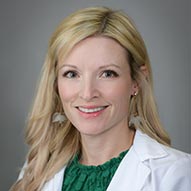
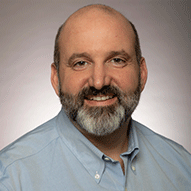
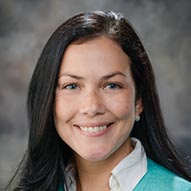
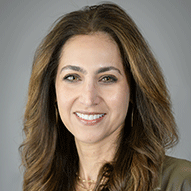
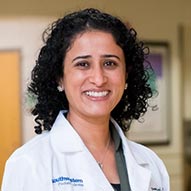
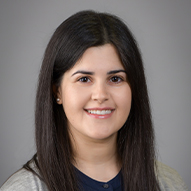
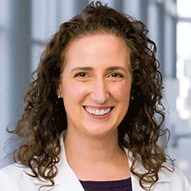
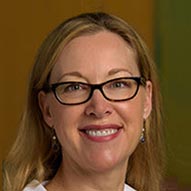
Most cases of tuberous sclerosis aren’t inherited. But in one-third of cases, a child inherits the TSC gene from one of their parents. If one parent has TSC, their children have a 50% chance of inheriting TSC.
In many children with TSC, doctors diagnose the condition before the child is a year old. But in some children, symptoms are mild or difficult to detect. With less noticeable symptoms, these children may not get a confirmed diagnosis for years.
Most people with TSC can live a normal life span. Some people experience complications from TSC that lead to problems in their brain, kidneys and lungs. Without treatment, these complications can be severe. If your child has TSC, they will need lifelong monitoring and care from their doctors.
Epilepsy is a condition that affects how the nerve cells in the brain communicate with each other. When the normal electrical activity in the brain interferes with this communication process, seizures can happen. Tuberous sclerosis can result in brain lesions, which can affect the nerve cells in the brain and cause seizures.
Most people recognize a seizure if someone has convulsions (shaking) combined with their body becoming rigid. People may clench their jaw and bite their tongue. This type of seizure is a tonic-clonic seizure (once known as grand mal seizures).
Other types of seizures may involve other symptoms, such as “freezing” for a minute or two (focal seizures). Children having an absence seizure (formerly known as petit mal seizures) may stop and then restart talking, or do repetitive movements like moving a hand or chewing their lips.
Most seizures will resolve on their own under 1 minute. If your child has tonic-clonic seizures, make sure they are in a safe position, typically lying on the floor on their side Don’t ever put anything in their mouth. If a seizure lasts longer than five minutes or seems violent, call 9-1-1.
After a seizure, your child may want to rest or seem “out of it.” Let them rest if they need to.